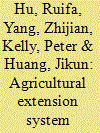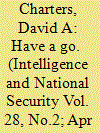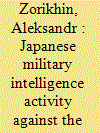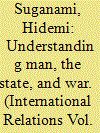|
|
|
Sort Order |
|
|
|
Items / Page
|
|
|
|
|
|
|
| Srl | Item |
| 1 |
ID:
089575


|
|
|
|
|
| Publication |
2009.
|
| Summary/Abstract |
We conducted a nationally representative survey to measure the impact of China's institutional reforms in public agricultural extension on the time allocation of its one million agricultural extension agents. We found that Chinese agents spent much less time than their titles would suggest on providing agricultural extension services, and that agents whose base salaries were funded fully or partially by commercial activities spent substantially less time serving farmers. The institutional incentives associated with the source of funding have a much larger effect on agent time allocation than do the levels of funding. We conclude that the recent government policy to separate commercial activities from extension services is a step in the right direction and should be expanded. The results also suggest that, at least for agricultural extension, the goal of many national governments and international donors to develop locally financing institutions to sustain development projects may be misguided.
|
|
|
|
|
|
|
|
|
|
|
|
|
|
|
|
| 2 |
ID:
119414


|
|
|
|
|
| Publication |
2013.
|
| Summary/Abstract |
Early in the Northern Ireland conflict the army took the lead in intelligence operations, including Humint. This article examines the case of 'Observer B', an agent run jointly with MI5. Using testimony and documents provided to the Bloody Sunday Inquiry as well as original archival sources, it offers a unique Humint case study that discusses the agent's recruitment, motivation, reliability, handling, product, and utility. This represents the most complete account that we have of this case, but gaps remain. It illustrates some of the limitations of clandestine Humint collection in situations where information may be time-sensitive. The article challenges the conventional wisdom about army/MI5 relations and shows how the two improvised and cooperated in agent-running.
|
|
|
|
|
|
|
|
|
|
|
|
|
|
|
|
| 3 |
ID:
184037


|
|
|
|
|
| Summary/Abstract |
A Japanese military intelligence agency has been continuously operating globally since 1871, and Russia has been consistently a major target of it. Following the end of the intervention in 1922, the government of Japan proceeded to improve relations with the USSR, for which reason the intelligence services of the Empire monitored military and economic capacity-building measures and the foreign policy of the Soviet authorities in the Far East, refraining from subversive activities. Soviet national security agencies managed to feed the military intelligence of Japan, the central intelligence body of the Empire, with overstated information about the status of the Red Army. That is why, from 1923 to 1931, Tokyo's military planning with respect to the USSR was defensive in nature.
|
|
|
|
|
|
|
|
|
|
|
|
|
|
|
|
| 4 |
ID:
146170


|
|
|
|
|
| Summary/Abstract |
The relationship between the press and the Intelligence Community (IC) in the United States has long been a subject of debate.1 The press alternately has been labeled a collaborator and enabler of U.S. intelligence by previously allowing Central Intelligence Agency (CIA) personnel to pose as journalists and by keeping information about the CIA from the public. It has also been accused of undermining the activities of the IC and endangering U.S. national security by exposing ongoing operations, wrongdoing, scandals, and failures, as well as by publishing secrets. Today, still another relationship is emerging: the press as an independent instrument of oversight.
|
|
|
|
|
|
|
|
|
|
|
|
|
|
|
|
| 5 |
ID:
092036


|
|
|
|
|
| Publication |
2009.
|
| Summary/Abstract |
This article expounds and assesses the key contentions of Man, the State, and War. It notes that the book contains meta-theoretical and theoretical components. Through a close re-examination of the text, the article shows how Waltz arrives at his third-image conclusion, reveals a number of errors of a conceptual or logical nature in the meta-theoretical moves that lead him to this conclusion, and explains how such errors are partly rooted in a deeper issue that the book addresses - how to integrate the three images (or three contending estimates of the major cause of war) into one overarching image of world politics based on the agent/structure dichotomy and the distinction between macro and micro enquiries. The article goes on to outline Waltz's substantive theory of international politics, found in an embryonic form in Man, the State, and War, speculates on the sources of the book's success, and assesses its main significance.
|
|
|
|
|
|
|
|
|
|
|
|
|
|
|
|
|
|
|
|
|